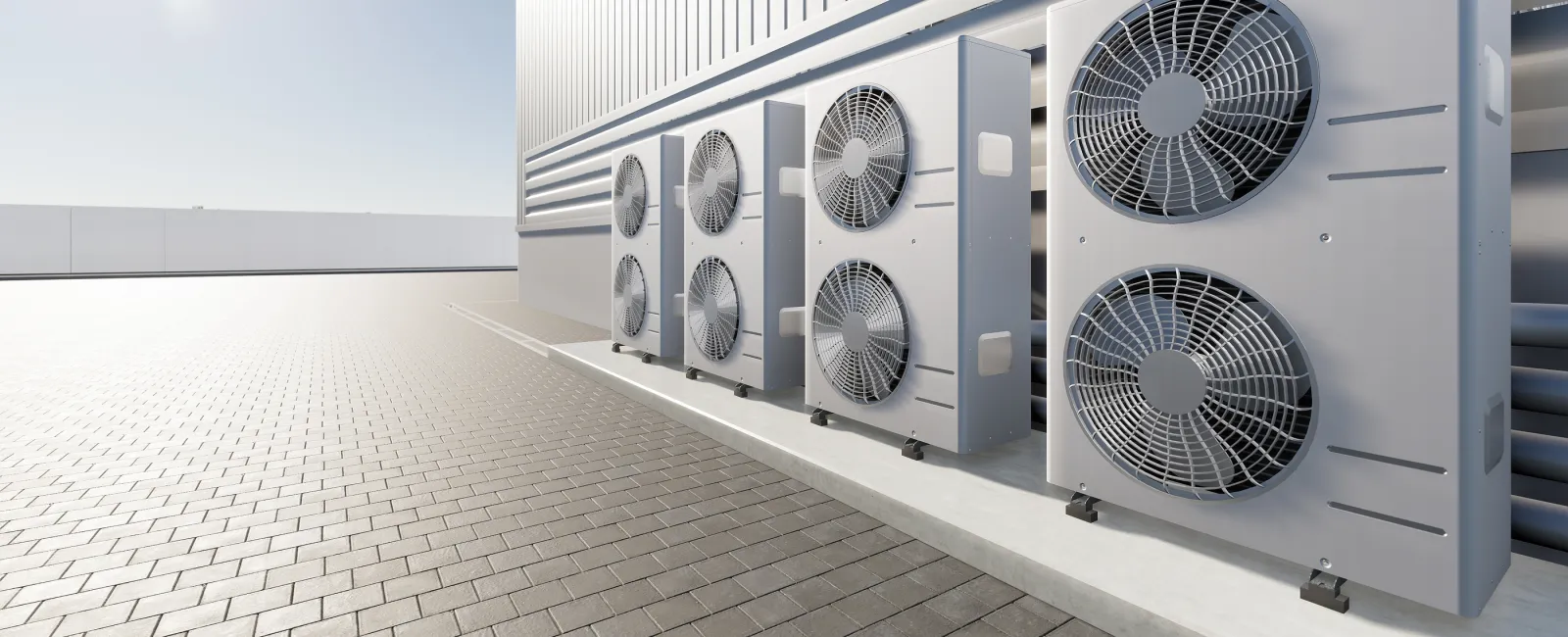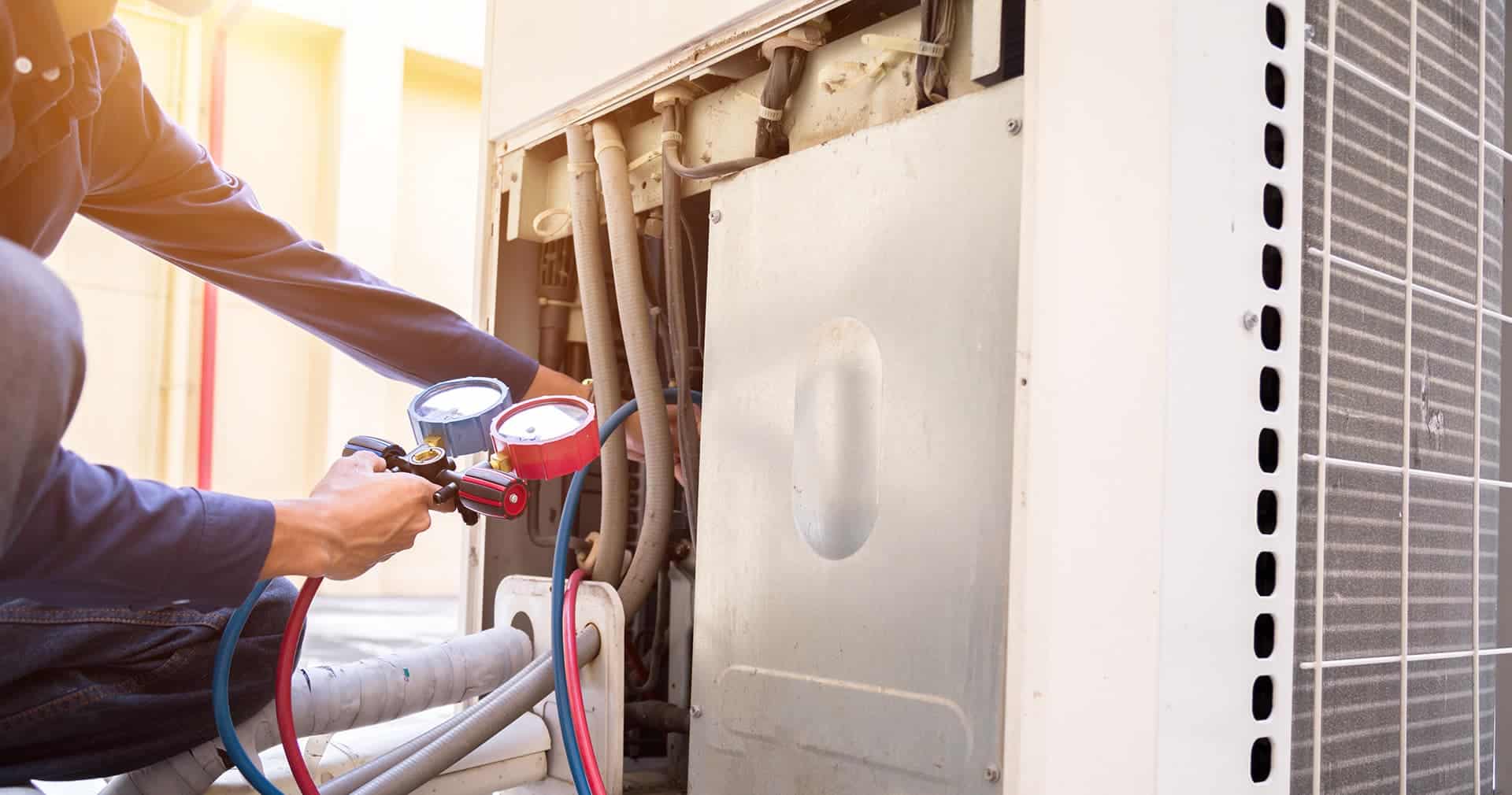Discover how HVAC experts enhance indoor comfort reliably
Discovering the Crucial Components of an Efficient HVAC System
An effective a/c system is developed on several critical parts that operate in harmony. Each component, from the thermostat to the ductwork, plays a crucial duty in keeping convenience and power performance. Comprehending these aspects is vital for enhancing efficiency and boosting interior air high quality. As one checks out these components, the detailed partnerships between them disclose understandings right into boosting general system effectiveness. What particular variables contribute most to this efficiency?
The Function of the Thermostat in Cooling And Heating Performance

Although commonly ignored, the thermostat plays a vital duty in the efficiency of a/c systems. HVAC experts. This little device acts as the key control facility, controling temperature setups and making sure optimal comfort within a space. By precisely noticing the ambient temperature level, the thermostat connects with the air, heating, and ventilation conditioning units to maintain the wanted environment
A reliable thermostat minimizes power consumption by triggering the heating and cooling system just when necessary, thereby stopping too much home heating or cooling. Modern clever and programmable thermostats enhance this performance additionally by allowing individuals to establish schedules and remotely readjust setups, adapting to everyday regimens.
Furthermore, the positioning of the thermostat is crucial; improper location can lead to inaccurate temperature readings, leading to inefficient procedure. Overall, a well-functioning thermostat not only enhances comfort yet additionally contributes considerably to energy savings and the long life of the a/c system.
Recognizing the Relevance of Air Filters
Air filters serve an essential feature in cooling and heating systems by assuring that the air distributing within an area remains healthy and balanced and tidy. These filters trap dirt, irritants, and other contaminants, avoiding them from being recirculated throughout the setting. By capturing these bits, air filters add to improved interior air top quality, which can greatly benefit residents' health, specifically those with allergic reactions or breathing conditions.
In addition, keeping tidy air filters enhances the effectiveness of heating and cooling systems. Blocked filters can restrict airflow, causing the system to work more challenging to keep wanted temperatures, causing increased power usage and higher utility costs. Consistently changing or cleaning up filters is a crucial upkeep action that can lengthen the life expectancy of cooling and heating equipment. Inevitably, understanding the importance of air filters allows property owners and structure managers to take aggressive steps to guarantee a well-functioning, reliable cooling and heating system that advertises a safe and comfortable indoor setting.

The Capability of the Heater and Warmth Pump
Furnaces and heat pumps are critical components of HVAC systems, liable for providing warmth during colder months. Heating systems run by heating air with burning or electrical resistance, after that distributing it throughout the home through ducts. They commonly provide rapid heating and can be fueled by gas, power, or oil, relying on the system kind.
Alternatively, heat pumps transfer warmth rather than create it. They remove heat from the outdoors air or ground, also in low temperatures, and transfer it inside. HVAC experts. This dual capability permits warm pumps to likewise supply cooling in warmer months, making them flexible choices for year-round environment control
Both systems call for appropriate upkeep to guarantee performance and long life. While furnaces master severe cool, heat pumps can be advantageous in moderate climates. Understanding their distinct capabilities help house owners in picking one of the most appropriate choice for their heating requires.
Discovering the Cooling Device
The cooling device is a crucial component of heating and cooling systems, readily available in various kinds to match different needs. Recognizing the performance ratings of these devices is important for making notified selections concerning energy usage and price. This section will certainly explore the diverse types of ac unit and clarify exactly how performance scores effect efficiency.
Kinds Of Air Conditioners
While various aspects influence the option of air conditioning systems, comprehending the different types readily available is vital for home owners and building managers alike. Central air more info conditioners are created to cool down whole homes or buildings, making use of a network of ducts for air movement. Window systems provide an even more local option, perfect for solitary areas or small spaces. Portable air conditioning system provide flexibility, enabling customers to move the unit as required. Ductless mini-split systems are another choice, incorporating the performance of central systems with the convenience of zoning, as they need no ductwork. Finally, geothermal systems harness the planet's temperature for energy-efficient air conditioning. Each type includes unique advantages, making educated selections necessary for efficient environment control.

Effectiveness Ratings Described
Understanding effectiveness ratings is vital for picking the best air conditioning system, as these metrics provide insight right into the system's performance and energy intake. The most typical rating for a/c is the Seasonal Power Performance Ratio (SEER), which determines the cooling outcome throughout a typical air conditioning period divided by the overall electrical power input. A greater SEER indicates far better efficiency. Furthermore, the Power Performance Proportion (EER) is used for gauging performance under certain conditions. Another crucial metric is the Power Star qualification, which symbolizes that a device satisfies rigorous power efficiency standards. By reviewing these scores, consumers can make informed choices that not only maximize convenience yet also lower power costs and ecological impact.
The Significance of Ductwork and Airflow
Efficient ductwork design and airflow management play critical roles in the general effectiveness and performance of cooling and heating systems. Appropriate ductwork assurances that conditioned air is distributed evenly throughout a space, lessening temperature changes and enhancing comfort. Well-designed air ducts decrease resistance to air flow, decreasing the work on cooling and heating tools and eventually decreasing power intake.
Air movement administration entails tactically putting vents and registers to enhance the flow of air. This avoids typical issues such as warm or cold places, which can take place when air flow is obstructed or inadequately balanced. In addition, the ideal duct products and insulation can further improve efficiency by decreasing heat loss or gain throughout air transit.
An efficient ductwork system not only contributes to energy savings however can likewise prolong the life-span of cooling and heating equipment by minimizing unneeded strain (HVAC experts). Understanding the relevance of ductwork and air movement is important for achieving peak Heating and cooling system performance.
Normal Upkeep Practices to Boost Efficiency
Normal maintenance methods are essential for ensuring peak efficiency of HVAC systems. These methods include routine inspections, cleaning, and needed fixings to maintain the system running successfully. Routinely altering air filters is important, as stopped up filters can obstruct airflow and minimize performance. Additionally, specialists need to check and clean evaporator and condenser coils to prevent getting too hot and energy wastage.
Annual specialist assessments are also suggested, as qualified technicians can determine prospective problems before they rise. Lubing moving components decreases wear and tear, adding to a longer life expectancy for the system. In addition, guaranteeing that the thermostat works appropriately help in maintaining optimal temperature control.

Regularly Asked Concerns
Just how Frequently Should I Replace My Thermostat?
Thermostats must typically be changed every 5 to ten years, relying on usage and modern technology improvements. Normal checks are recommended to assure peak performance, particularly if experiencing inconsistent temperature control or increased power prices.
What Dimension Air Filter Is Finest for My Heating And Cooling System?
The ideal size air filter for a cooling and heating system varies by system style. Normally, it's important to speak with the proprietor's handbook or check the existing filter measurements to ensure peak efficiency and air top quality.
Can I Mount a Heatpump Myself?
Installing a heat pump individually is feasible for competent individuals, yet it needs expertise of electrical systems and local codes. Hiring a specialist is recommended to assure correct setup and optimal system performance.
How Do I Know if My Ductwork Is Efficient?
To determine ductwork effectiveness, one must examine for leakages, measure airflow at vents, examine insulation high quality, and examine temperature level distinctions in between supply and return ducts. Professional evaluations can offer thorough insights into general efficiency.
What Are Indicators My HVAC Needs Immediate Maintenance?
Indicators that a cooling and heating system requires prompt maintenance consist of unusual noises, irregular temperature levels, raised energy costs, undesirable odors, and constant cycling. Addressing these issues quickly can prevent further damages and assurance peak system efficiency.
Air filters serve a crucial feature in A/c systems by assuring that the air flowing within a space remains healthy and balanced and clean. Furthermore, preserving clean air filters enhances the effectiveness of A/c systems. Ductless mini-split systems are an additional alternative, incorporating the performance of main systems with the convenience of zoning, as they need no ductwork. Understanding efficiency scores is crucial for selecting the appropriate air conditioning device, as these metrics offer insight into the system's efficiency and power consumption. The best size air filter for a HVAC system differs by device layout.